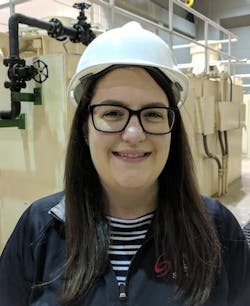About the author:
Amy McIntosh | Managing Editor | [email protected]
In last month’s issue, I wrote about how water treatment professionals can enact change by meeting with lawmakers to tout their issues and expertise. A few weeks later, I got to experience that firsthand by attending the Water Quality Assn.’s (WQA) DC Fly-In and Water Resources Congressional Summit in Washington, D.C.
I rolled into the nation’s capital early March 5, ready to hear about the issues at hand. This was WQA’s fourth Fly-In, and the member turnout was the highest yet. The event was held with the National Groundwater Assn. and the Irrigation Assn., and the first day was filled with speakers tailored to the packed room.
The associations then split up to discuss their individual issues. WQA’s talking points focused on raising awareness of the nation’s per- and polyfluoroalkyl substance (PFAS) issues and final barrier solutions. Attendees also were told to ask House members to join the newly formed bipartisan PFAS Task Force.
With more than 50 congressional meetings scheduled, the groups had a busy second day. I didn’t know what to expect on day two, but I did assume that as an editor not involved in actual water treatment, I would just hang around and hope people would be willing to answer questions about their experiences. However, I was allowed to tag along on several meetings, watching the previous day’s planning in action and seeing how different groups made their cases to lawmakers.
In my article, I wrote about the importance and influence of congressional staffers, but seeing them in action was eye opening. Although interest in joining the task force varied from office to office, everyone we met with was engaged and expressed a genuine desire to learn more about both PFAS and WQA’s capabilities. Staffers and congress members were particularly engaged when someone from their home state or district was in a meeting, all seeming to value input from their constituents.
I would encourage everyone with a vested interest in the water industry to participate in events like these. Lawmakers are not water treatment experts, and they need resources to turn to when these issues make headlines. You have the power to be those resources.
